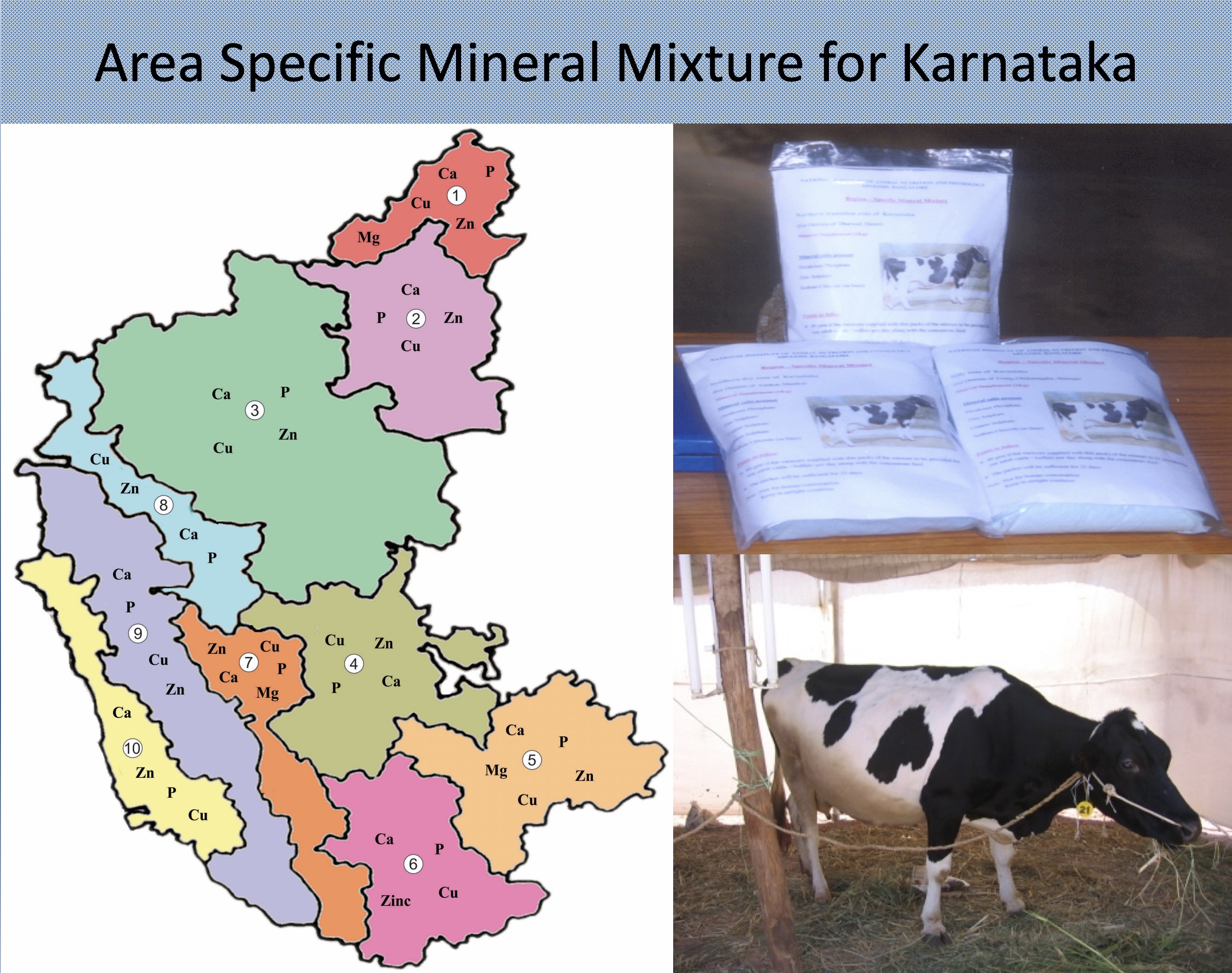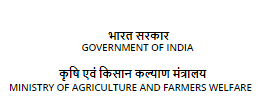Area Specific Mineral Mixture for Karnataka

Background:
Low reproductive efficiency and inadequate health in cattle and buffaloes are one of the major problems in livestock production in India, resulting in poor economic returns to the livestock farmers. The deficiency and/or imbalance of micro and macronutrients is one of the important factors responsible for the low reproductive efficiency and health. As micronutrients are required in small quantities as compared to macronutrients, they can be supplemented more easily without affecting the existing feeding practices in the villages. The practice of mineral supplementation to animals is not regularly followed in most parts of India. Wherever it is practiced the mineral mixture is added to the compound feed without taking into account the mineral status of the area, leading to imbalances of minerals. Supplementation of area-specific minerals most deficient in that area or zone avoids antagonistic effects of excess levels of other minerals, thereby improving the bioavailability of micronutrients and could be a more practical and cost-effective approach.
Technology Details:
A detailed study on the micronutrient status of soil, water, feed fodder and blood of dairy animals maintained mostly under stall feeding with seasonal grazing was carried out in ten agro-climatic zones of Karnataka in India by a team of scientists. The study on the mineral mapping of the state has revealed that the major deficiency is of calcium, phosphorus, copper, zinc and in some areas magnesium in the different zones surveyed. Based on this information area-specific mineral mixture comprising of the most deficient minerals with common salt as the base was prepared for different geographical areas of Karnataka. The technology was field-tested in adopted villages under Institute village linkage programme (IVLP). Area-specific mineral mixture was prepared and distributed to farmers having animals with reproductive problems like repeat breeding and anoestrus condition. The animals were supplemented with 40-50 g of mineral mixture per day mixed in either concentrate feed or homemade concentrate mixture (bran, oilseed cake, gram husk). Approximately 300 animals with reproductive problems were supplemented with area-specific mineral mixtures. Overall data revealed that in anoestrus category 70 percent of animals started cycling within 40 days of feeding the mineral mixture. Similarly, in post-partum anoestrus category, 80 percent of the animal stated cycling within 40 days of supplementation. Under repeat breeding category, 60% of animals conceived upon supplementation of the mineral mixture. Overall, 65% percent of the cattle having reproductive problem became pregnant within 70 days of the mineral mixture supplementation. All the animals supplemented showed improvement in general health and shine on the hair coat.
The results clearly showed that if the mineral deficiency in dairy animals is ameliorated by supplementing mineral mixture formulated based on our research findings, majority of the reproductive problems in dairy animals can be corrected and the reproductive efficiency will be enhanced.


